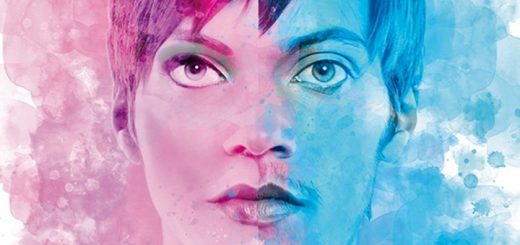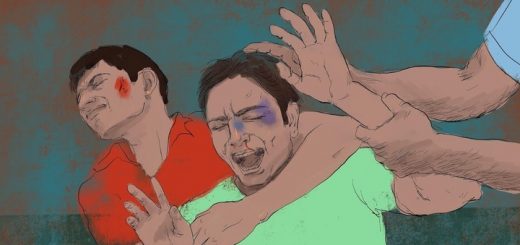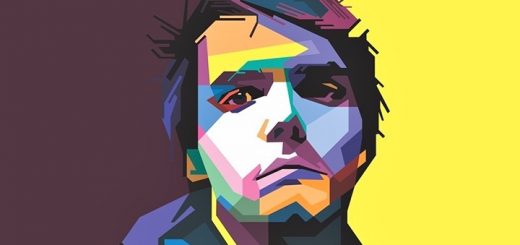Bullying and homotransphobia in the language of young people
Dialogue by Katya Parente with the writer and teacher Dario Accolla
Today's guest, Dario Accolla, is an LGBT activist with a doctorate in modern philology, a teacher and a writer. In a word, a tough type. Among his works they appear "Gays are all left - homosexuality, politics, society" (Aracne, Rome 2012), "Mario Mieli thirty years later", with Andrea Conieri (Mario Mieli Circle, Rome 2013), the collection of stories "Since Ines went to live in the city" (Area, Arezzo 2014) e "Homophobia, bullying and youth language" (Village Maori Edizioni, Catania 2015), "The gender: the final drafting" (Village Maori Edizioni, Catania 2017) e "The foreigner does not pass - how to resist the sovereign speech" (Village Maori Edizioni, Catania 2019).
Being a profession in contact with the boys, and since the new generations are those that will shape a company not too distant, we have decided to speak with him about the relationship between bullying, homotransphobia and the way of expressing themselves of the teenagers, treated in "Homophobia, bullying and youth language".
First of all, a bruciapelo question: why did you write this book?
It comes from an urgency: establish the link between word and insult. Homophobic insult, specifically. Insult which then becomes a specific ingredient of a persecution. And the latter, through a "system putting", becomes that more complex phenomenon that we call bullying.
The word has a kind of effect feedback: describes things, but also changes its perception. Is this also the same for homophobic language?
Language has universal rules. Accompanying a phrase, the use of specific words, with a certain inflection of voice, with a specific gestures, we give a value - and a meaning - to the terms we use. This therefore applies also for the language imbued with homo-bi-lesbo-transphobia. We think of otherwise neutral phrases, accompanied with a laugh. A "Look who is there!" pronounced neutrally has a value. Accompanied with a derisory tone, in the direction of a "suspected" person of homosexuality, another. In the first case nothing happens, in the second case we can do very badly.
You speak of the youth world: in which contexts homophobia has more fertile ground?
In socialization contexts, especially. Schools, gyms, even the wall in which you find yourself in the free hours. These places are "theaters" of socialization, essential to cut out their place in the world. From an early age. We do not enter these theaters of existence in a neutral way. We carry our reference context behind us. In our context, the so -called "non -regulatory sexualities" are seen with suspicion. And they provide us, from very young people, with cultural devices to react negatively towards all this does not respect the pre-determined rule. This rule, called in a very synthetic way, sees being LGBT+ (and not only) as an error and disadvantage. Violent reactions achieve, where with the term "violence" I do not refer only to the physical one. Derision, isolation and bullying are violent responses of a society that has few tools to metabolize diversity.
What weight do the words have?
With words we can define whole areas of existence. I am a very powerful tool. Even in the Bible - and I say it as a non -believer - we find an example of the "creator" power of language. God created the world, in fact, with words. And the man gave, not surprisingly created in his image and likeness, of the power of the word. If I were a believer, every time I use the words I would feel like drawing on the divine power of creation. Therefore, a problem arises: how to use this "gift"? By creating hell, here on the ground, for thousands of LGBT+teenagers, describing them as errors (inverted), children of a perverse and corrupt nature (counterproning), as vegetables (fennel) or as parts of the body (ass, rich)? Because it is what you do, daily, with the so -called "Homophobic language".
You are a teacher. What do you recommend to your colleagues so that teenagers use a respectful language towards queer people?
It would be the case that in schools, proper training was made to manage, build and constructively welcome all the diversity present in our classrooms. Schools are the mirror of an increasingly multi -ethnic society, increasingly inhabited by singularity that escape with their direct experience to the "standard" above. To intervene in patches is useful in the management of individual cases, but it is not enough. It takes a national direction. Always use the male and the female, in the classroom, together with more inclusive formulas it can be a good exercise of inclusion. Probleizing the language of hatred, not repressing it - tabuizes it is the best way to make it even more fascinating - but responsible for adequate linguistic choices, it can be another solution. But, I repeat, a wider, coordination action is needed.
And who is the victim/spectator of a homophobic episode?
To report, always. Confiding with someone that you have full confidence, first of all. Always looking for allies. Loneliness is a very dangerous condition, in these contexts. Opening, talking about it, looking for help is always an excellent antidote to feel in a certain way more protected, less isolated.
You are gay and you are declared. Have you ever happened to you that your pupil mocked you? How did you react?
It happened. Nothing particularly serious, fortunately. Where the situation was revealed to my eyes, I simply asked the boy in question to clarify his thoughts better. In a very quiet way. I made an opportunity for debate, in the classroom, to talk about respect for the differences. In other contexts, other students and other students came to help. That of the teacher is a reference figure. Homosexuality polarizes the judgment. If you are credible as a teacher, you will have formidable and unexpected allies. It has happened to me several times. There you understand that they see the person and his value, not his sexual orientation. And I think this is the most important thing.
If being an activist means committing to make the company more right by putting his face, then Dario is fully. That his commitment can encourage many educators to break down cultural barriers and to understand that those in front of us is a human being. Just like us.






